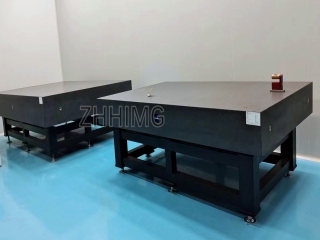Granite vs. Marble Precision Components: Understanding the Difference in Precision Control
When it comes to precision components used in manufacturing and processing, the choice between granite and marble can significantly impact the accuracy and quality of the final product. Both materials are commonly used for precision components, but they differ in their properties and performance during processing.
Granite is a popular choice for precision components due to its exceptional hardness, durability, and stability. It is a natural stone known for its resistance to wear and corrosion, making it an ideal material for applications that require high precision and accuracy. On the other hand, marble is also used for precision components, but it is softer and more prone to scratching and chipping compared to granite.
The difference in precision control between granite and marble components during processing lies in their hardness and stability. Granite precision components offer superior precision control due to their hardness and resistance to deformation. This allows for more accurate and consistent machining, resulting in precise dimensions and tight tolerances. In contrast, marble precision components may be more challenging to control during processing due to their softer nature, which can lead to variations in dimensions and tolerances.
The impact of precision control on the accuracy of the final product is significant. Granite precision components contribute to the overall accuracy and quality of the final product by maintaining consistent dimensions and tolerances throughout the manufacturing process. This is crucial in industries such as aerospace, automotive, and medical, where precision is paramount. On the other hand, using marble precision components may result in less predictable outcomes and potentially lower accuracy due to the challenges in maintaining precise control during processing.
In conclusion, the choice between granite and marble precision components can have a substantial impact on the precision control and accuracy of the final product. Granite offers superior hardness and stability, allowing for precise and consistent machining, while marble may present challenges in maintaining precision control. Therefore, when precision is a critical factor in manufacturing and processing, opting for granite precision components can ensure the highest level of accuracy and quality in the end product.
Post time: Sep-12-2024

